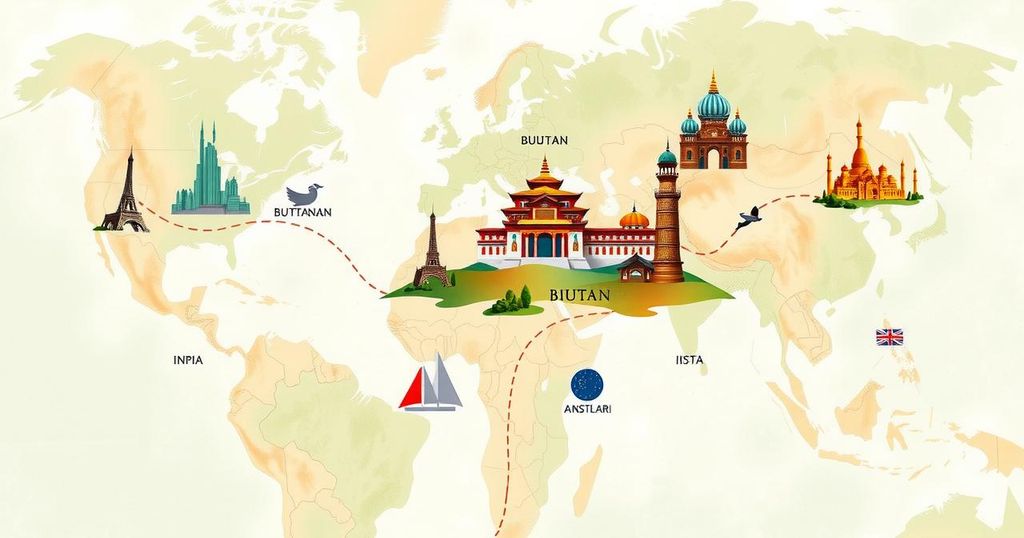Bhutan, along with Afghanistan, is on the US draft red travel ban list due to increased visa violations and national security concerns. Citizens from Bhutan may face stricter visa processing and scrutiny. The travel ban impacts US-Bhutan relations. The situation raises questions about existing visas and immigration policies in light of past executive orders and potential future bans.
Bhutan and Afghanistan are among the nations included on the United States’ draft red travel ban list. While Afghanistan is facing an outright ban, Bhutan falls under similar restrictions due to a 37% rise in visa violations reported within the past year. In comparison, Pakistan is categorized as orange, indicating limited travel but not a complete prohibition.
The draft list, established by the Trump administration, features several countries, categorized as red, orange, and yellow. Citizens from the red list, which includes Bhutan, will be outright banned from entering the US due to perceived national security threats and migration concerns. The US State Department is expected to finalize its report on these countries shortly.
Bhutan’s inclusion on this list stems from rising concerns about national security, with the US government citing irregular migration patterns and increased instances of Bhutanese nationals overstaying their visas. The Department of Homeland Security has outlined significant checks for Bhutanese citizens wishing to travel to the US, resulting in stringent scrutiny and potential denials for visa applications.
This travel ban could cause strained relations between the US and Bhutan, a nation characterized as peaceful and stable. Bhutan’s Ministry of Foreign Affairs has formally requested a review, asserting that its citizens do not pose significant security risks to the US.
The implications of the travel ban remain uncertain, particularly regarding individuals with existing visas or green card holders. There are concerns that some citizens may lose their visas while the status of other potential travelers remains ambiguous. The Biden administration had previously repealed the travel bans initiated by Trump, which primarily targeted Muslim-majority countries.
Historically, Trump had enacted a travel ban upon assuming office, which faced widespread critiques and legal challenges for being discriminatory towards specific nationalities. Moving forward, his campaign indicates a commitment to reinstating such measures if he regains power, suggesting a continuous focus on stringent immigration policies.
In summary, Bhutan’s presence on the US travel ban list is attributed to rising visa violations and concerns about national security. The categorization highlights the broader implications for Bhutanese citizens seeking to enter the United States, with significant implications for US-Bhutan relations. The evolving situation demands careful scrutiny, particularly regarding existing visas and the future of immigration policies under changing administrations.
Original Source: www.news18.com






